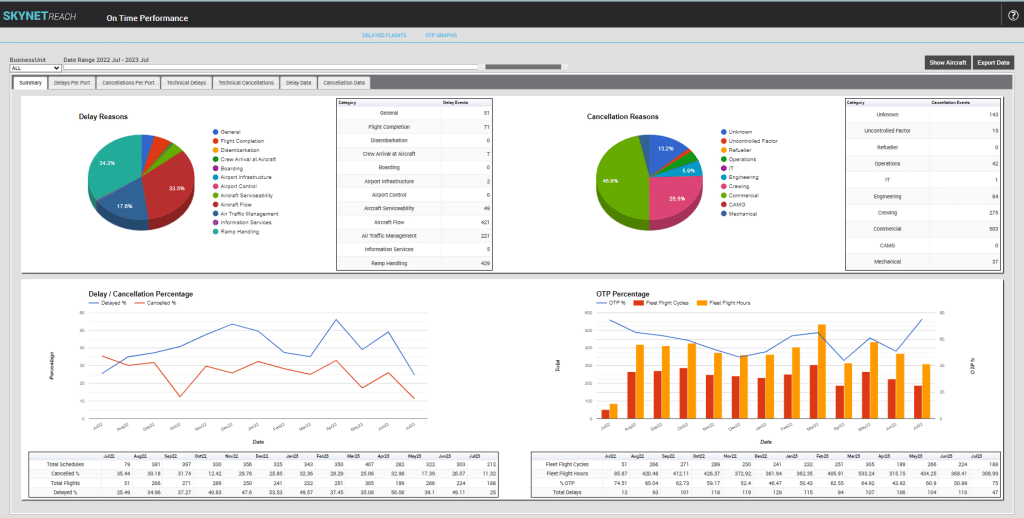Among the various tools and processes that aid OCCs, integrated software applications for flight planning have become a central component.
At SkyNet Aviation, we have partnered with ForeFlight to provide a seamless integration of their industry leading Flight Dispatch module with our cutting-edge OCC platform.
What are the key reasons your organisation would want an integrated Flight Dispatch platform in the OCC. Let’s explore further.
- Operational Efficiency
Integrated flight planning streamlines the decision-making process within an OCC by presenting a comprehensive view of flight-related information. By considering factors such as optimal routes, fuel-efficient altitudes, and real-time weather data, OCCs can make well-informed decisions.
- Safety and Compliance
Airspace regulations and safety considerations are paramount in aviation. Integrated flight planning allows OCCs to consider factors such as restricted airspace, weather hazards, and aircraft performance limitations to ensure that flight plans adhere to safety standards and regulatory requirements.
- Crew Scheduling and Compliance
Airlines must manage crew schedules to ensure compliance with regulatory guidelines while optimizing crew utilization. An integrated Flight Dispatch platform allows the OCC to be updated in real time about flight times that are longer or shorter than planned, in order to keep track of cumulative flight and duty hours, landing and port qualifications, and more!
- Cost Reduction and Control
Fuel expenses constitute a significant portion of an airline’s operational costs. Integrated software applications assist OCCs in identifying fuel-efficient routes, altitudes, and speeds, leading to substantial cost savings over time.
- Adaptability
The aviation landscape is subject to unpredictable changes, such as weather fluctuations and air traffic congestion. Integrated Flight Dispatch software applications enable OCCs to adapt flight plans in real-time, minimizing disruptions and maximizing efficiency.
- Data-drive Insights
By analysing historical data and operational patterns, the OCC can identify trends, areas for improvement, and best practices, leading to continuous enhancements in planning strategies.



